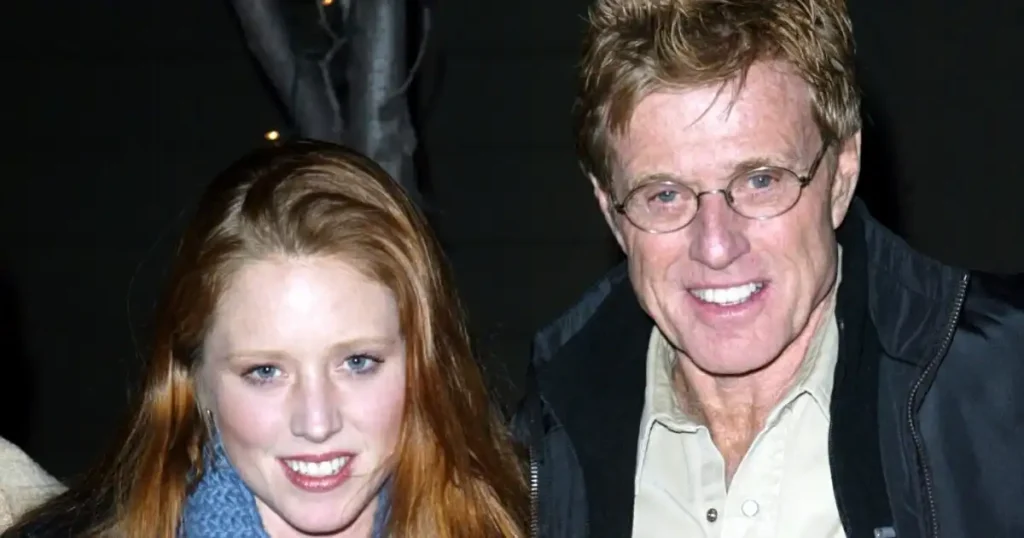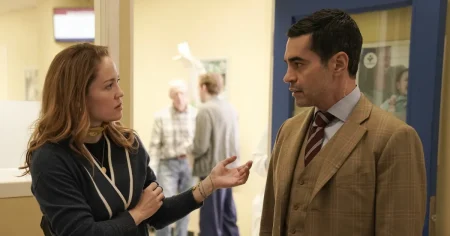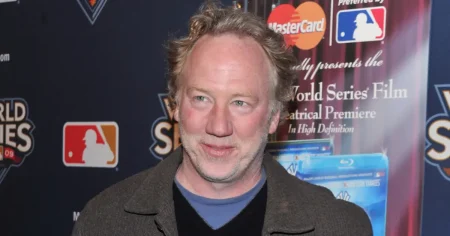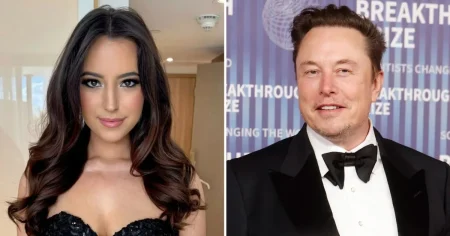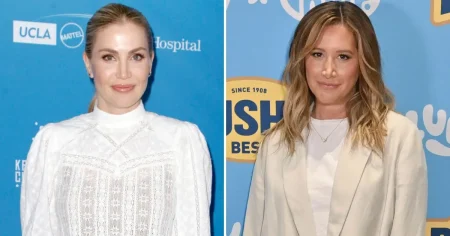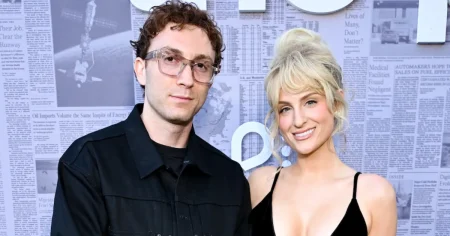A Daughter’s Tribute: Amy Redford Addresses Memorial Plans Amid AI Misinformation
In a heartfelt statement shared via Instagram on November 19, Amy Redford, daughter of the late Hollywood icon Robert Redford, expressed profound gratitude for the outpouring of love and support her family has received since her father’s passing in September. “It’s clear that he meant so much to so many,” Amy wrote, acknowledging the flood of tributes that have arrived through various channels—from emails and text messages to handwritten notes left on her doorstep. The 55-year-old filmmaker conveyed how touched the Redford family has been by the countless stories and tributes that have poured in from around the world, demonstrating her father’s far-reaching impact on generations of admirers. This global response has been both comforting and humbling for the family as they navigate their grief in the wake of losing such a significant figure in their lives and in American culture.
However, Amy’s message took a more serious turn as she addressed a troubling issue that has complicated the family’s mourning process: the proliferation of artificial intelligence-generated content falsely depicting her father’s funeral arrangements and fabricating family statements. “There have been multiple AI versions of funerals, tributes and quotes from family members that are fabrications,” she explained, highlighting a growing problem in our digital age where technology can be misused to spread misinformation, even about something as sensitive as a family’s grieving process. Amy expressed particular distress over AI-generated renderings of her father “who clearly has no say” and misrepresentations of family members that “do not represent anyone in a positive light.” She emphasized how these artificial creations have added an “extra challenging” dimension to an already difficult period of mourning, as the family attempts to process their loss privately while honoring Robert Redford’s legacy with authenticity and dignity.
Amy took the opportunity to clarify that contrary to some reports, the family has not yet held a public funeral for Robert Redford and is “working out plans for a memorial in the future.” This straightforward correction highlights the family’s desire to approach their commemorative arrangements thoughtfully and on their own timeline, away from public speculation or artificial timelines created by social media and AI-generated content. “Every family should have the ability to mourn, represent the person they lost and pay homage in the way that fits their values and family culture best,” Amy wrote, advocating for the fundamental right to privacy and autonomy in how families choose to honor their departed loved ones. Her words remind us that behind the public persona of a celebrated actor and director was a father, grandfather, and husband whose family deserves space and respect as they determine how best to celebrate his remarkable life and legacy.
While acknowledging that artificial intelligence technology “isn’t going anywhere,” Amy expressed hope that it can be used more responsibly and “transparently” in the future. She recognized that many aspects of AI were “created with good intent” but appealed to a sense of human empathy, asking people to consider: “What if this was you? Let that be your guidepost.” This poignant question invites reflection on how we would want our own moments of grief to be handled and respected, particularly in an age when digital technology can so easily blur the lines between truth and fabrication. Amy’s plea for human authenticity to “live, inspire and be the connective tissue we all crave” speaks to a broader concern about maintaining genuine human connection in an increasingly AI-mediated world, especially during life’s most profound and vulnerable moments such as mourning a beloved family member.
Robert Redford passed away in September at his home in Utah, dying peacefully in his sleep according to his publicist, Cindi Berger, though no specific cause of death has been revealed. The Oscar-winning actor and director, who founded the Sundance Film Festival and became an environmental activist, left behind a profound legacy both within and beyond the entertainment industry. Redford is survived by his daughters Amy and Shauna from his marriage to Lola Van Wagenen, his wife Sibylle Szaggars, and seven grandchildren. The family has previously experienced significant loss, with Robert’s son James dying from cancer in October 2020 at age 58, and his son Scott passing away from Sudden Infant Death Syndrome in 1959 when he was just two months old. These previous losses add layers of meaning to how the family approaches their current grief, with an understanding of how precious family memories and accurate representation of a loved one’s life can be.
In the wake of Robert Redford’s passing, others close to him have also shared their tributes. His grandson Connor, 33, posted a touching Instagram message in September, writing: “He was larger than life to the world, but to his family, he was simply that…family,” and inviting people to privately share their stories about his grandfather. Similarly, Jane Fonda, Redford’s longtime friend and former co-star, expressed her deep sorrow, telling Us Weekly: “It hit me hard this morning when I read that Bob was gone. I can’t stop crying. He meant a lot to me and was a beautiful person in every way. He stood for an America we have to keep fighting for.” These genuine expressions of grief and remembrance stand in stark contrast to the AI-generated content that Amy Redford criticized, demonstrating the irreplaceable value of authentic human connection and the importance of allowing families to commemorate their loved ones with integrity and in their own time. As the Redford family continues to plan a fitting memorial, Amy’s message serves as a reminder of the need for compassion and respect in our increasingly digital world, especially when it comes to matters of grief and remembrance.




